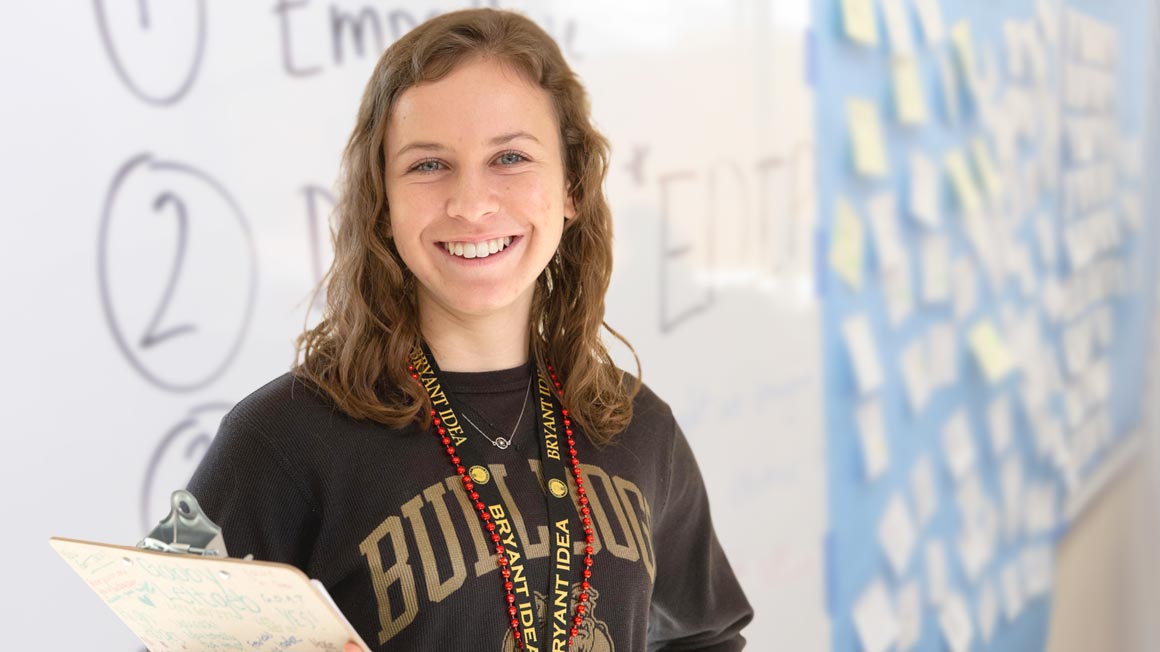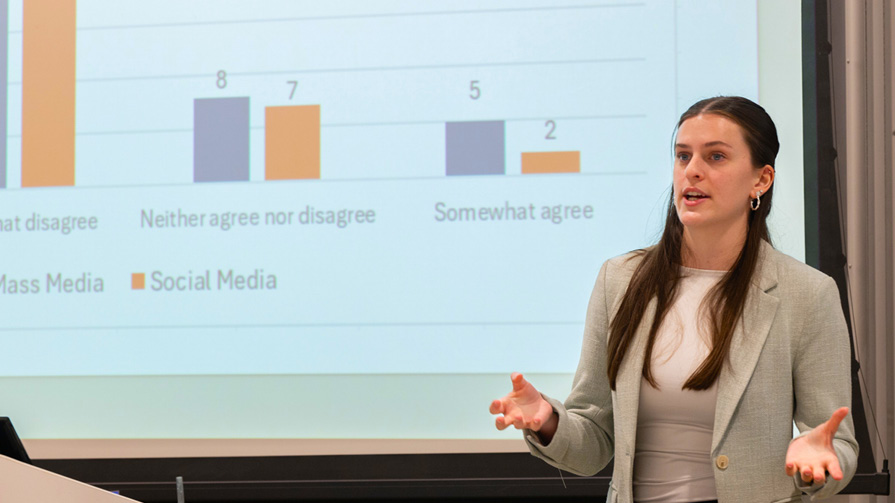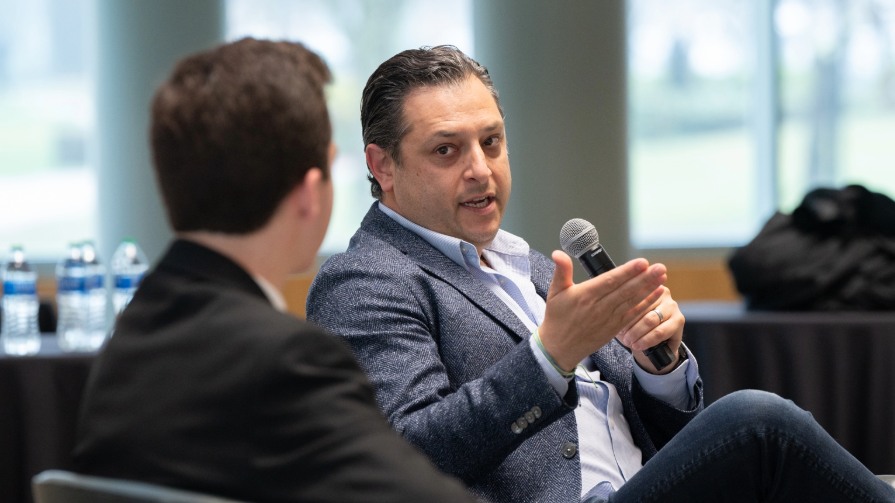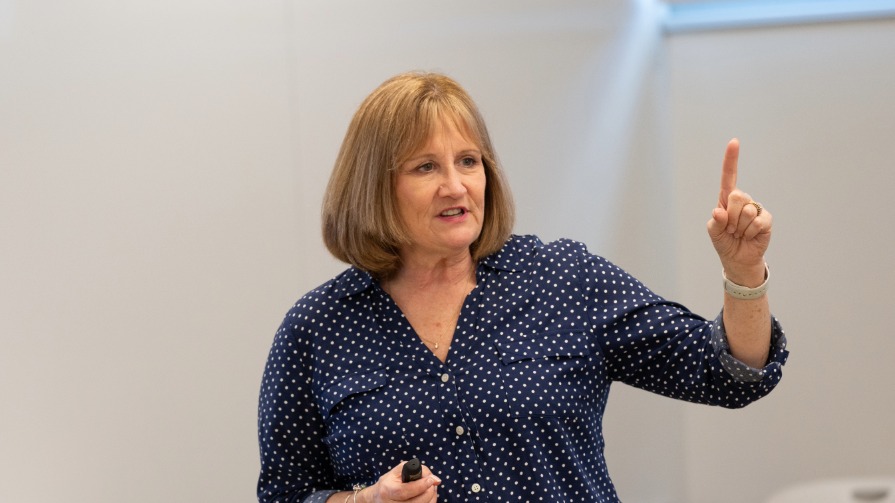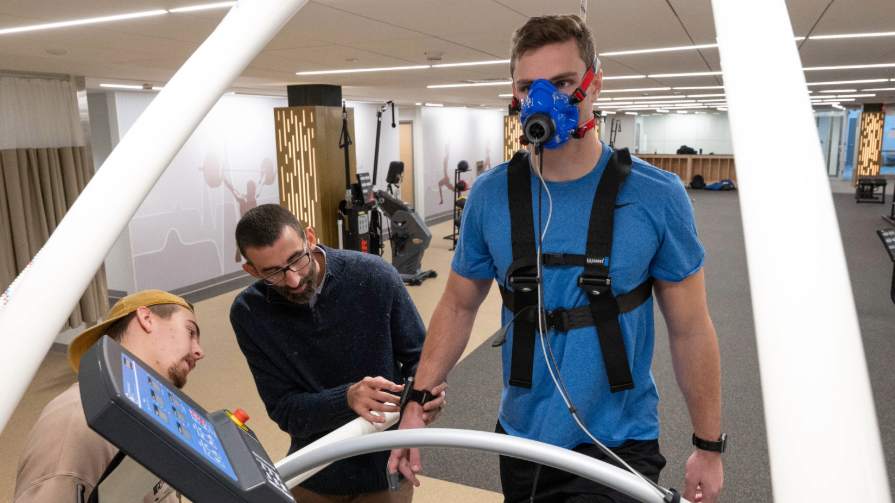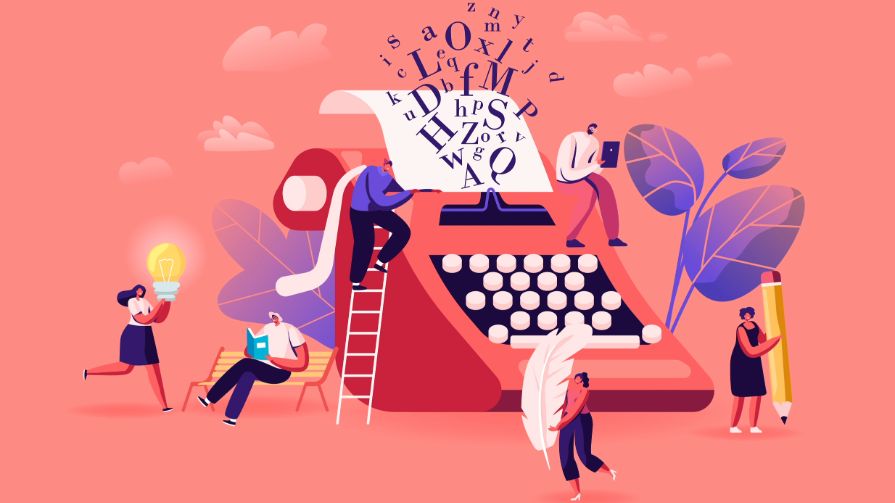In Bryant’s IDEA (Innovation and Design Thinking Experience for All) program, the University’s first-year students learn the power of design thinking firsthand. Though the immersive bootcamp only lasts for three days and two nights, students find that the lessons they take away from the experience prepare them to make a difference throughout their time at Bryant and beyond. The program is so valuable for student development that participants often return to IDEA as mentors eager to share what they’ve learned and the how they’ve used it.
“I think what Bryant students learn through IDEA sets them apart in the workforce,” says Communication major Meaghan Angers ’20. “I don't know of any other universities that have their students go through such intense training to learn teamwork and design thinking, especially as first-year students. Because of IDEA, Bryant students are already ahead of the game in the real world, and they bring what they learn to their internships, their job interviews, and to the workforce.”
“Sometimes dealing with big projects can seem overwhelming and you don’t even know where to start, but IDEA, and design thinking, gives you a process that you can follow to figure them out and navigate through them.”
Finding your way
A human-centric problem solving methodology used by many of the world’s most successful companies, design thinking challenges assumptions and redefines problems in ways that generate creative and effective solutions to important issues. Through IDEA, Bryant students develop the proven skills of innovators and impact thinkers – creativity, empathy, collaboration, connectivity, and perseverance – and learn how to use those skills to tackle big challenges.
“Sometimes dealing with big projects can seem overwhelming and you don’t even know where to start, but IDEA, and design thinking, gives you a process that you can follow to figure them out and navigate through them,” says Gabby Leitgeb ’20 who is double-concentrating in Team and Project Management and Psychology. “It’s something you can use in all sorts of different environments, both in your classes and in your career.”
“My IDEA experience really helped me in my internship... To be able to start off in that empathy phase is incredibly important when you're making something for a specific set of people.”
Results that matter
“I know design thinking is valuable because it's something I’ve used in the real world,” says Leitgeb. As a Content Review Intern for the publishing company Wiley, Leitgeb used the skills gained through IDEA to work on case studies and create an information storage system. Design thinking "is a process that sticks with you,” she says. “It doesn’t just help you with business tasks; it helps you understand and work with people.”
The company highly valued her efforts and ability to creatively solve problems, she says. “They actually began implementing some of the ideas I introduced,” says Leitgeb, who will join Amica’s Future Leaders program after graduation.
“Employers are going to think this is so cool that you already have these tools."
Political Science and Applied Analytics major Ryan Glander ’20 has a similar story. “My IDEA experience really helped me in my internship,” he says. As a Claims Analyst Intern for the Hartford Steam Boiler Inspection and Insurance company, Glander used his design thinking training and its focus on teamwork, empathy, and human-centric thinking to develop innovative risk reduction solutions for Gen Z consumers.
He and his team studied how members of Gen Z think and feel, a tenet of design thinking. “To be able to start off in that empathy phase is incredibly important when you're making something for a specific set of people,” says Glander. The solutions his team came up with were so well received they won a “Shark Tank”-style competition judged by C-suite executives at the company.
Spreading the word
“As more and more companies learn about design thinking, it’s going to make the skills that Bryant students learn through IDEA even more important,” says International Business: Global Supply Chain Management major Danielle Nikosey ’20.
“When I was applying for the internship, they asked me ‘How are you at critical thinking and problem solving?’ And I realized ‘Oh! I know this! I did this in IDEA.”
When Nikosey was a Global Merchandising Business Associate Intern at Wayfair, her supervisor mentioned an interest in learning about design thinking after hearing about how it’s being embraced by a growing number of businesses. When Nikosey mentioned her IDEA experience, her supervisor asked her to lead a design-thinking presentation and workshop for 30 other employees.
Nikosey’s strong performance during the internship helped her secure a position with Wayfair; she’ll join the company’s Business Analyst Rotational Program in May. IDEA, she says, helped make that happen. “Employers are going to think this is so cool that you already have these tools. If you have an experience like mine where my manager was interested in learning more, you can say, well, I actually have a lot of insight into this already.”
As an intern for Walker Health Plans, Leadership and Innovation major Haleigh Resnick ’20 had a similar experience. She was asked to run an IDEA-based training session as part of the company’s Lunch and Learn program.
“In my Disney internship, everyone complimented me on my management skills. They ... said, ‘you just have a way of listening to people and actually understanding what they're telling you,’ and that was because of IDEA.”
The session, she says, was a success. “It was really cool to see all these professionals come together and have as much fun with design thinking as we do in IDEA.” Resnick notes. “Some of the staff told me afterwards that it was the best Lunch and Learn they've ever been to.”
The "Ah-ha" moment
“Sometimes with IDEA you don’t even realize how valuable what you’ve learned is until afterward,” notes Finance and Economics major Melissa Hernandez ’21. “You have that aha moment, when you start to apply it to your real life. “
IDEA training came in handy during her time as a marketing intern with the software company Turbonomic. “When I was applying for the internship, they asked me ‘How are you at critical thinking, and problem solving?’ And I realized ‘Oh! I know this! I did this in IDEA,’” she says. After securing the internship, she went on to use what she’d learned about design thinking to prepare marketing materials for the company. “What you learn in IDEA allows people to get creative and think outside the box,” says Hernandez.
“They'll hit a point where they realize, ‘oh wait. I remember that!’ or ‘I know something about that.’ And then they’ll look around and realize they're the only person in the room who does.”
Accounting major Haley Bobok ’21 didn’t expect to use her IDEA experience as an intern with the Disney College Program, but quickly found it to be a powerful asset. In the training session, "the first thing they mentioned was design thinking,” she remembers. “I was pretty far ahead of everyone else in understanding that process.”
IDEA's empathy lessons also set her apart. “In my Disney internship, everyone complimented me on my management skills. They all came to me and said, ‘you just have a way of listening to people and actually understanding what they're telling you,’ and that was because of IDEA.”
Bobok agrees with Hernandez that there will come a time in every student’s life when they realize just how valuable IDEA is. “They'll hit a point where they realize, ‘oh wait. I remember that!’ or ‘I know something about that.’ And then they’ll look around and realize they're the only person in the room who does.”
